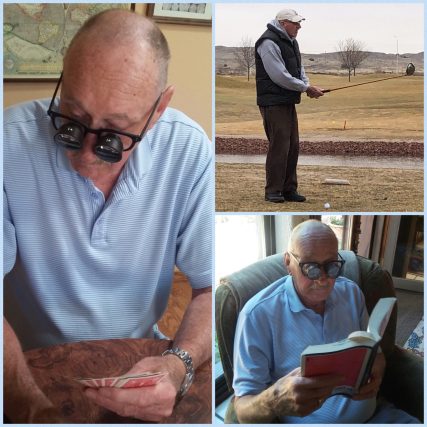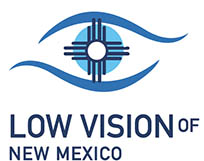Dr. Arielle Angel, Low Vision Optometrist. Serving Patients In Albuquerque and The Entire State Of New Mexico
Dr. Dulce Walker, a Low Vision eye doctor, is passionate about helping people in New Mexico recover their day to day functioning. Too many patients leave their ophthalmologist or retinologist thinking there is nothing left to be done but manage the disease to prevent further vision loss. Her goal is to help you do the things you want to do.
For many people, proper use of a Low Vision device means being able to read, drive, sew, play cards, watch television, and use the computer—all of which would be impossible without these Low Vision Aids. At the Low Vision of New Mexico, Dr. Angel can help patients from Albuquerque, Santa Fe, Las Cruces, Los Alamos and the entire state of New Mexico to enjoy life after vision loss with Low Vision Aids, glasses, and devices.
Meet The Low Vision Optometrist

Regain Your Independence
One of the hardest realities of living with low vision is the need to constantly rely on others. Transitioning to a lifestyle of dependency is traumatic both for the person with low vision, as well as their families. Many times the spouse or child will be left to run errands, drive the patient around, cook and clean and much more.
Low vision aids may give the patient the freedom to perform the tasks they need and regain their self-sufficiency.


What Is A Low Vision Exam?
During your low vision eye exam, Dr. Dulce Walker will determine your level of vision, see if new regular glasses will be an improvement, discuss your wish list and help decide the best solution to help you regain as much day to day functioning as possible.
You will discuss with Dr. Dulce Walker what your specific vision goals are, such as reading, writing, recognizing faces, watching TV, or driving. Dr. Angel will determine what areas of your vision are lacking, whether central or peripheral. She will then recommend the various low vision aids or devices that will help you do what you want to do. The low vision exam usually takes 2 hours.
Testimonials
Her patients are often moved to tears when they can get back to doing the things they love. Dr. Angel has shared some of her patient’s experiences in order to show the dramatic life-changing nature of low vision care.

There Is Hope For Families Of Low Vision Patients
If your father, mother, spouse or child is visually impaired, it can cause intense tension and strain at home. Your loved one suffering from Low Vision will likely be stressed, angry, or depressed about his or her condition and loss of independence. It is important to keep in mind the incredible stress that vision loss causes. As family members, you should encourage your loved ones to explore the possibilities that low vision care opens up.
